Day One will focus on local communities, resources for family carers, and receiving care in your own home.
Day Two will look at the residential care setting, and the latest ideas and innovations to improve long term care services.
Day One will focus on local communities, resources for family carers, and receiving care in your own home.
Thursday 25th May - Day One
Friday 26th May - Day Two
CEO Kim Tully will welcome attendees to the 15th International Dementia Conference.
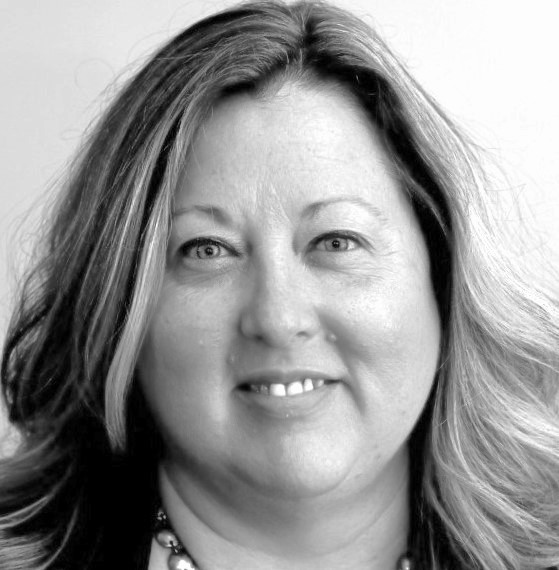
Kim joined Engaging Dementia as CEO in late 2020. She has over 20+ years of experience in diverse roles for a renowned global organisation, and is enjoying her move into the community and voluntary sector. Kim has a Master’s Degree in International Business from the University of South Carolina, USA.
Minister Mary Butler will officially open the event.
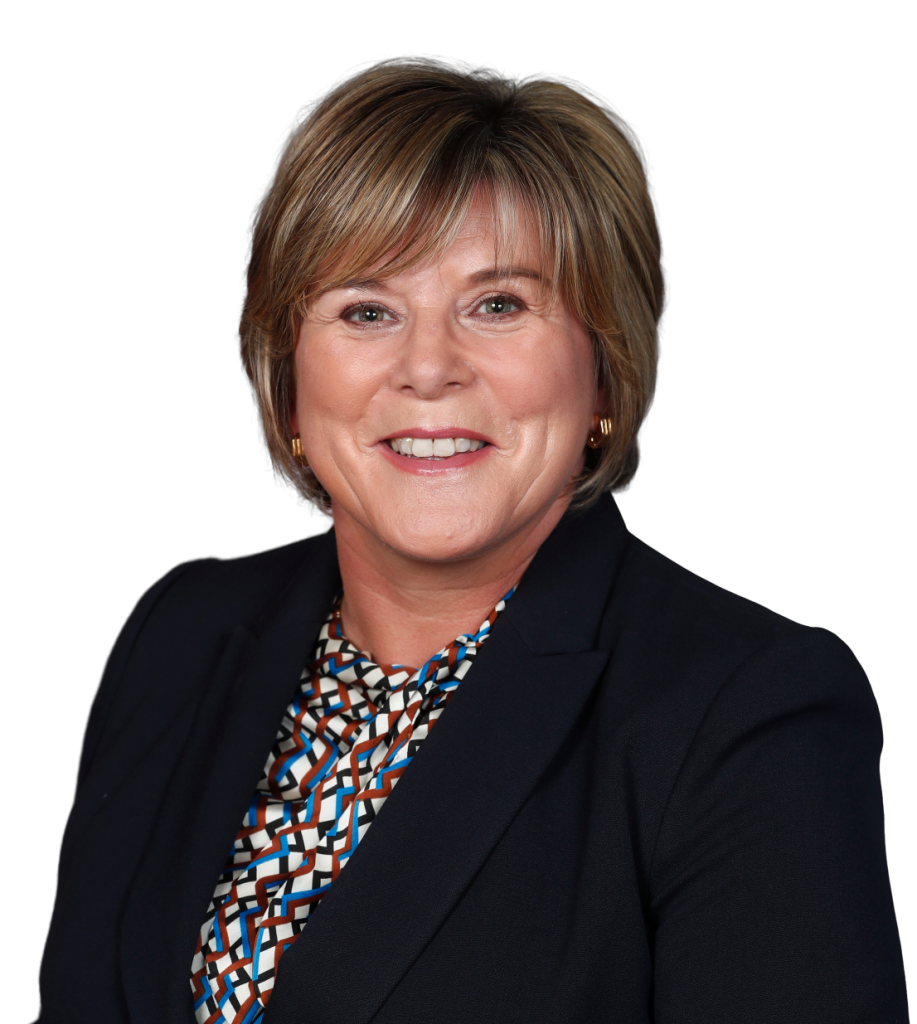
Minister Butler is Minister of State at the Department of Health with special responsibility for Mental Health and Older People. She is a TD representing the Waterford Constituency. Mary served as a Councillor having won a seat in the 2014 Local elections in the Comeragh area before contesting the 2016 General Election after securing the Fianna Fáil nomination for Waterford. She also had the honour of being the first female Fianna Fáil TD to be elected for the party since 2007. In the 2020 General Election, Mary was delighted to be re-elected to continue her work representing the people of Waterford City and County.
Charlie will talk about his lived experience as someone diagnosed with dementia in 2019. He will discuss how it impacts his everyday life, and share lessons he has learned to support himself within his community of Mallow. In particular, he will detail the help and cooperation of the Crystal Dementia Care Team, and how community supports such as dementia-inclusive cafes and social days out have allowed him to remain active in his community.
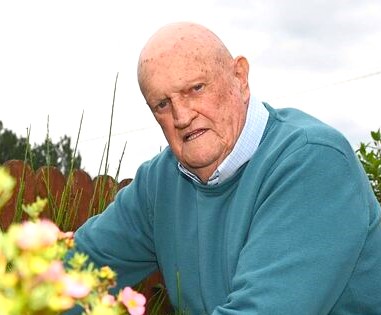
(this session is prerecorded)
Prof. Cahill will discuss human rights within the context of dementia. In particular the areas of:
- Changing demographics and dementia prevalence rates worldwide and in Ireland
- Different models for understanding of dementia
- Value of understanding dementia as a disability and a human rights concern
- The application of a Human Rights-Based approach for practitioners
- Meaning of a Human Rights-Based approach for policy-makers
- Future directions in dementia care in Ireland
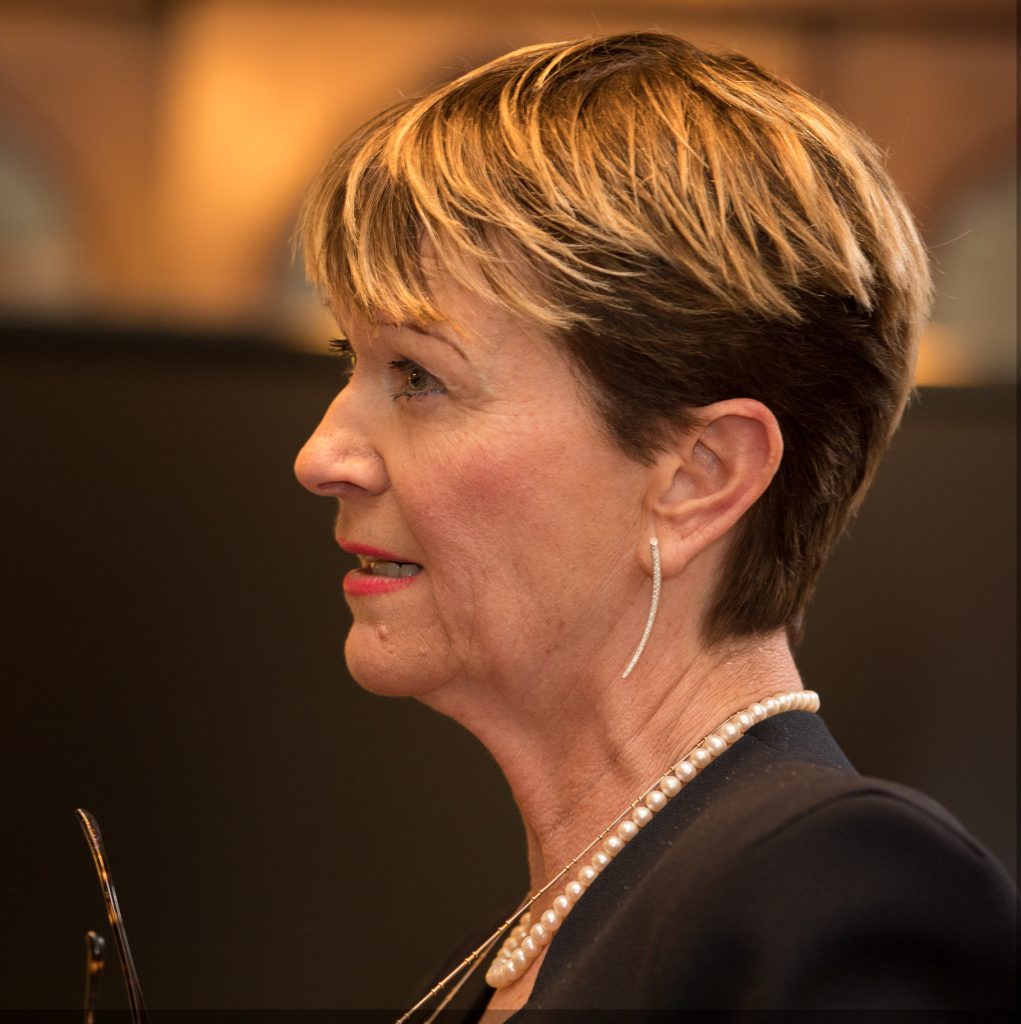
Professor Suzanne Cahill has a Bachelor’s and Master’s degree in Social Science from University College Dublin and a PhD from the University of Queensland Australia. She has over 35 years experience working in aged care and dementia services and is recognized nationally and internationally as a commentator and expert on dementia matters. She is an Adjunct Professor of Social Work and Social Policy at Trinity College Dublin. She also holds an honorary Professorship in Dementia at the CESRD in NUI Galway and is an Affiliated Professor of Health and Welfare, at the Institute of Gerontology, Jonkoping University, Sweden. She is the author of the book titled: Dementia and Human Rights and another book titled: Perspectives on the Person with Dementia and Family Caregiving in Ireland.
Short break
National Coordinator for Dementia: Understand Together Fiona Foley, will be joined by Dementia Champion Fiona Crotty, and member of the IDWG Kathleen Farrell to discuss the new dementia inclusive community symbol.
Dementia: Understand Together is a coalition response that aims to build understanding about dementia and create an Ireland that embraces and includes people with dementia and their families: a key priority action of the National Dementia Strategy. The campaign is led by the Health Service Executive and supported by people affected by dementia, national partners, and local community champions, who are taking actions to create inclusive communities. To visually connect action that is being taken across Ireland, representing the culture change around dementia, we developed a dementia inclusive symbol that will act as an overarching symbol of solidarity, inclusivity and support for people living with dementia and be a sign that communities, businesses and services are working towards being dementia inclusive. The symbol was created in consultation with people with dementia, their families, national partners and local community champions, members of the public and the Dementia: Understand Together working group.
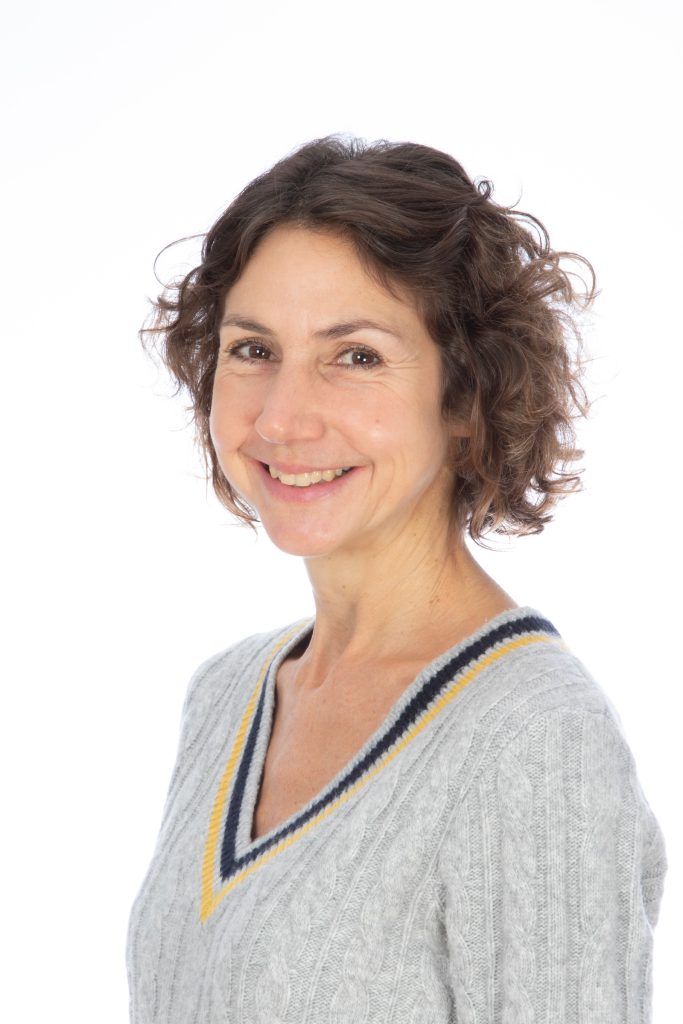
Fiona Foley joined the team of the National Dementia Office in March 2022 as Senior Project Manager “Dementia: Understand Together”.
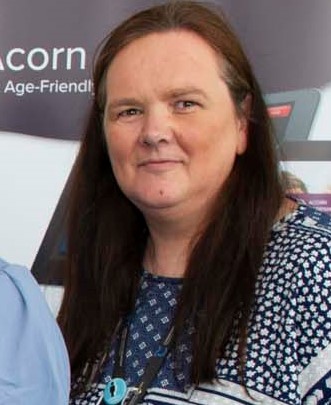
Fiona Crotty has worked with Tipperary County Council for 27 years and in the Community Economic and Rural Development since 2016. Within her role as Administrative Officer she is the Tipperary Age Friendly Programme Manager, supports the Tipperary Local Economic and Community Development Committee (LCDC) Health and Wellbeing through Healthy Ireland and Sláintecare Healthy Communities Programme.
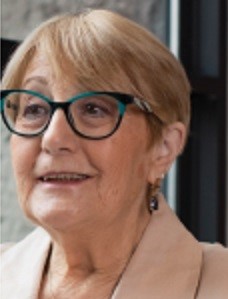
Kathleen Farrell is 70 years old. In 2021 Kathleen was diagnosed with Lewy Body Dementia with Parkinson’s. Since her diagnoses Kathleen has decided to speak openly about living with Lewy Body Dementia. Kathleen joined the Irish Dementia Working Group in 2022 and has decided to become an advocate for other people living with dementia. Kathleen hopes by sharing her stories and experiences the future for other people being diagnosed with dementia in Ireland may improve.
Gemma O’Donnell is the Dementia Adviser for the South Tipperary Region. She will be joined by Ann Marie O’Dwyer, Marguerite Keating and Teresa Normile to discuss their experience of setting up and running a community dementia café.
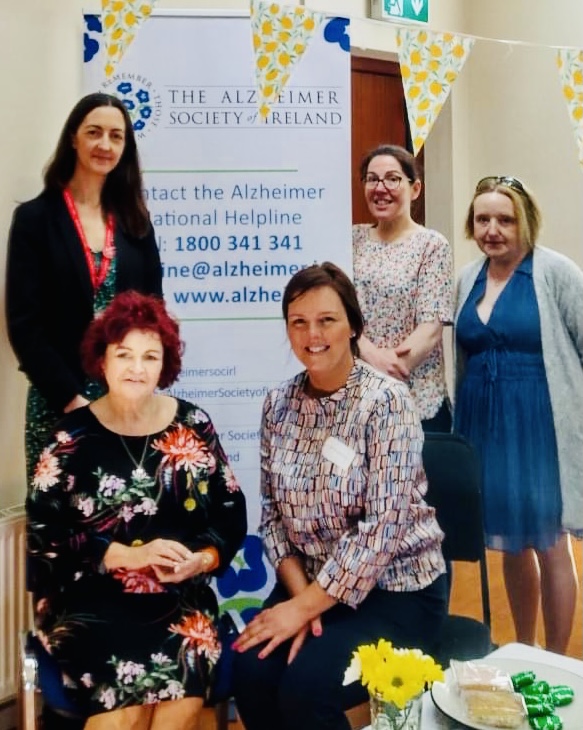
Tipp Town Dementia Café Steering Committee Members:
Standing Left to Right:
- Elaine Wilkinson, Advanced Nurse Practitioner,HSE, Cashel Memory Clinic (diagnostic services),
- Teresa Normile, Community Development Co Ordinator, Knockanrawley Re-source Centre,
- Ann Marie O’Dwyer, Volunteer, Knockanrawley Resource Centre.
Seated Left to Right:
- Marguerite Keating, Irish Dementia Working Group, The Alzheimer Society of Ireland,
- Gemma O’Donnell, Dementia Adviser South Tipperary, The Alzheimer Society of Ireland.
(This session will be prerecorded)
There are many music experiences available for people with dementia and their family caregivers living in the community. However, distinction between these experiences is often blurred and choosing an appropriate music experience can be a challenge. This presentation provides an introduction to how music-based interventions and music therapy can support people with dementia and their family caregivers living in the community.
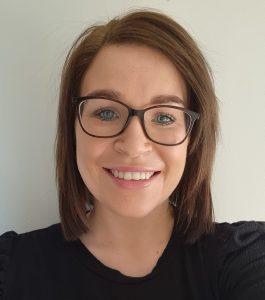
Dr. Lisa Kelly is a music therapist from Co. Galway and is the co-founder of Anam Music Therapy, a social enterprise which aims to provide accessible music therapy to those who need it most. Lisa graduated from the MA Music Therapy in 2020 with a first-class honours. She recently completed her PhD in April 2023 which explored how telehealth music therapy can support people with dementia and their family caregivers living in the community.
Break for lunch
Nancy will provide a brief history of the Validation Method as developed by Naomi Feil and discuss her personal experience with validation as a practitioner and researcher with 18 years experience in a memory day centre, in particular to how it transformed her work. Through her talk she will also demonstrate how Validation involves integrating skills and beliefs, as well as 3 techniques that can be immediately applied to practice.
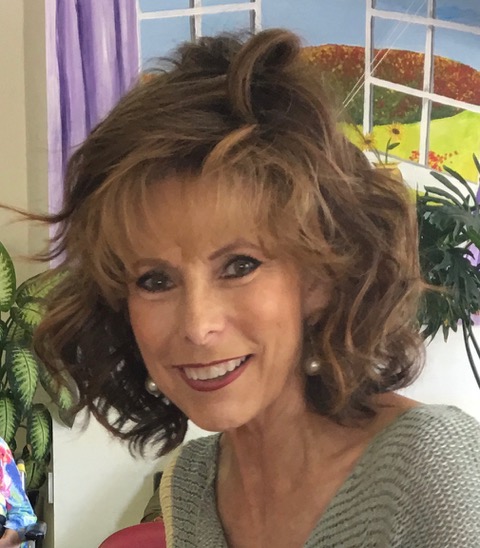
Nancy Brown is the Deputy Director for Communications at the Validation Training Institute.
Nancy Brown has 18 years experience in dementia care in a memory day centre serving all levels of cognitive impairment. As a practitioner-researcher and specialist working with older adults living with advanced dementia, she is also a PhD candidate in dementia studies at the University of Edinburgh and the research centre ECRED. She is a Certified Validation Teacher and conducts webinars, workshops, and private consultations for professional staff, volunteers, families, and caregivers. Nancy serves as Communications Chair for the Non-Pharmacological Interventions interest area of Alzheimer’s Association International; and, Executive Committee member of SDRC (Scottish Dementia Research Consortium).
Emma O’ Brien, Kerri Malone, Orla McDonnell and Kate Hanlon deliver this presentation as an introduction to The Supportive Memory Guide eBook and to share key aspects of the eBook, how to use it and where to access it.
This guide has been created by occupational therapists to provide useful tips and practical strategies to empower people with early stages of dementia to create protective routines and systems. The eBook provides a range of advice covering topics on scheduling and planning, developing helpful routines and creating supportive environments to engage optimally. The eBook suggests easy ways to adapt smartphones, tips on managing medication, and potential uses of smart home technologies along with information on simple home technologies. These can make participation in everyday activities easier and compensate where memory and cognitive changes have impacted on the person.
The supportive review and feedback from the Dementia Working Group and a range of healthcare professionals is greatly appreciated and provided valuable input towards the publication.
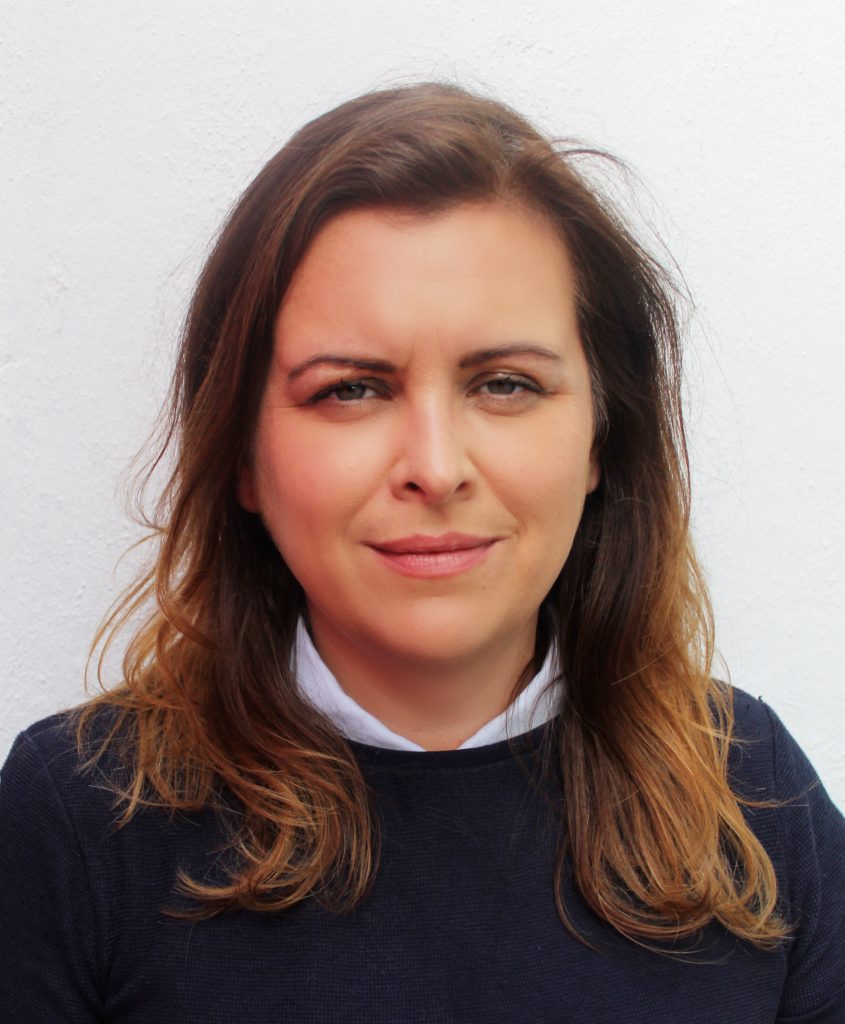
Emma O’Brien is a senior Occupational Therapist for the Memory Technology Resource Rooms in Ireland
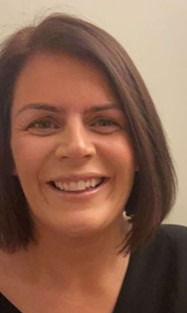
Orla McDonnell is a senior Occupational Therapist in Louth Primary Care

Kerri Malone is a senior Occupational Therapist in Louth Primary Care

Kate Hanlon is a multi-media specialist working with eHealth & Disruptive Technologies
People with dementia benefit from a palliative approach to their care, and in some instances, from input from Specialist Palliative Care. However, many do not receive this type of care. The Model for Dementia Palliative Care Project aims to develop a model to organise the service-delivery of palliative care to people with dementia and their families who are living at home in the community. This presentation will share results from the project, including evidence for core activities of dementia palliative care, and present the current draft model.
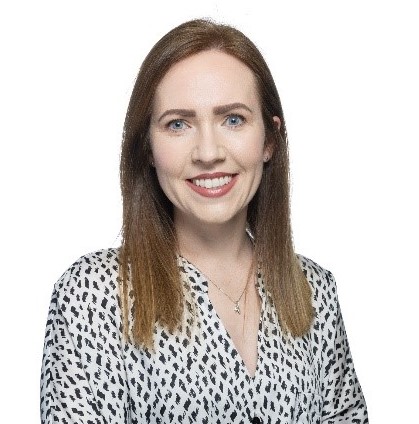
Dr Siobhán Fox is a Lecturer and Senior Postdoctoral Researcher in the Centre for Gerontology and Rehabilitation in University College Cork.
Her research interests include the optimisation of palliative care for people with dementia. She has published multiple peer-reviewed articles, book chapters, and presented at international conferences on this topic. Dr Fox is project manager on the Model for Dementia Palliative Care Project (2017-2022).
Short refreshment break
Niamh and Amy will provide an overview of reminiscence therapy and the benefits that have been found for people with dementia. We will be touching on research points here. In particular, they want to highlight their own story on reminiscence therapy. They will give an overarching view of the ForgetMeNot App, how it works and how it can be used as a means of practically managing the symptoms of dementia. The team’s aim is to raise awareness of not only the app itself, but also the power and importance of reminiscence therapy for individuals living with dementia.
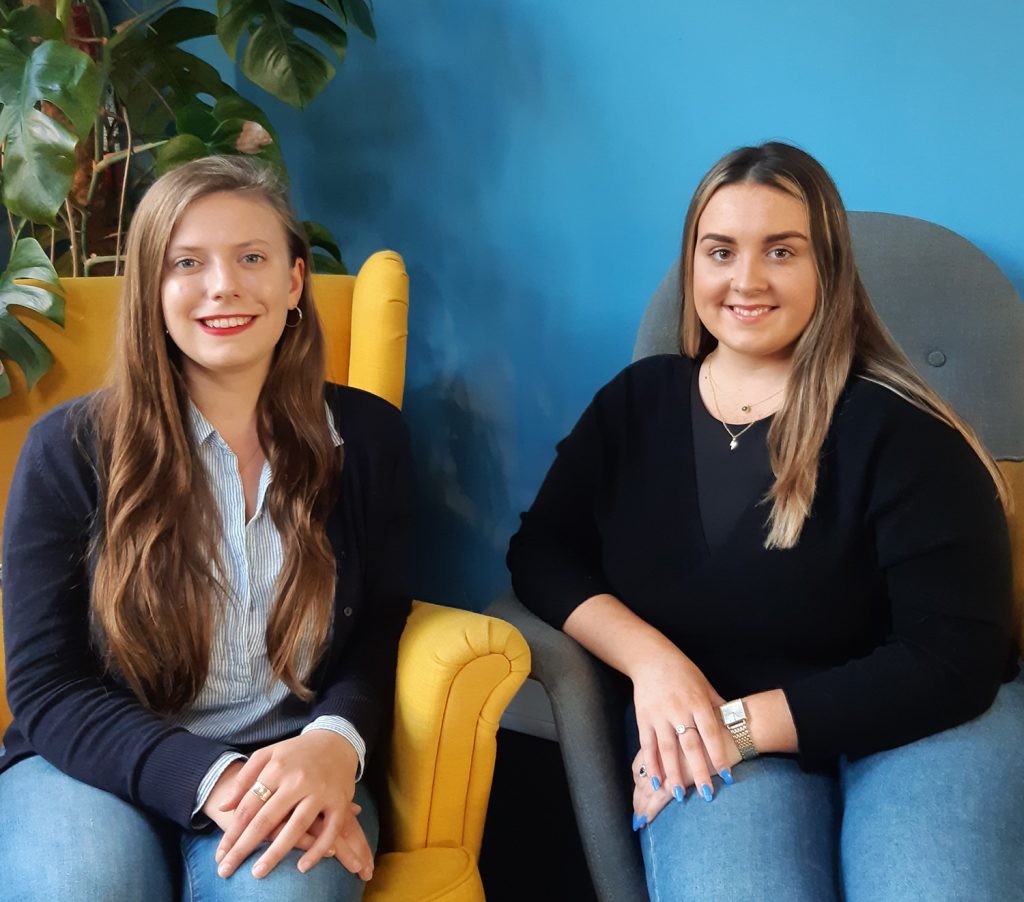
Niamh Murray and Amy Boyden are Co-Founders of the ForgetMeNot App.
The ForgetMeNot App acts as a personalised and bespoke digital memory book for people living with dementia. The idea was borne from their personal experience caring for their loved ones living with dementia. For many years, Niamh and Amy used photographs, storytelling and music to communicate with their family members living with dementia. Little did they realise that at practice they had been doing for years was actually the basis of a body of research known as reminiscence therapy. The app features three main tools: photos,music and voice recordings which provide a simple means for family members and carers to practice reminiscence therapy, a practice with proven benefits in reducing agitation and stimulating brain activity.
This presentation will deliver practical information to people living with dementia and their support person or family carer. It will be based from Helen’s 20+ years working in the field of Older Person’s Services and will detail the fundamental aspects of transitioning from home to supported care.
Helen holds a MSc in Dementia Studies and is a dementia champion in her local community as well as having personal lived experience of caring for her own father who had vascular dementia.
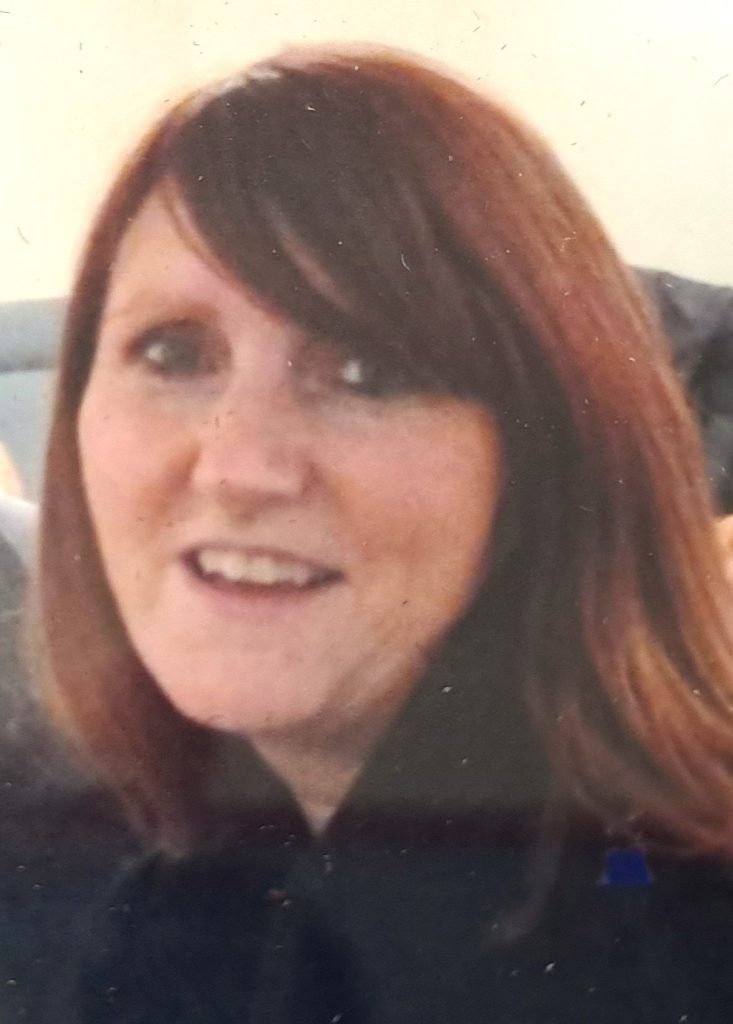
Helen Walsh is a RGN working as an ADON for the past six years in older person services Mayo. She trained in London, and staffed there for six years moved back to Mayo where she worked in SGH and then moved into older person services where she has been for the past 20+ years.
Michael Wright, Director of Public Affairs, Home Instead Ireland will be looking at the present and future of home care in Ireland.
Michael will compare and contrast HSE Home Support Packages to the services of Private Home Care and look at home support issues prevalent in Ireland today. He will discuss what changes may we see and how could these impact the future of dementia care.
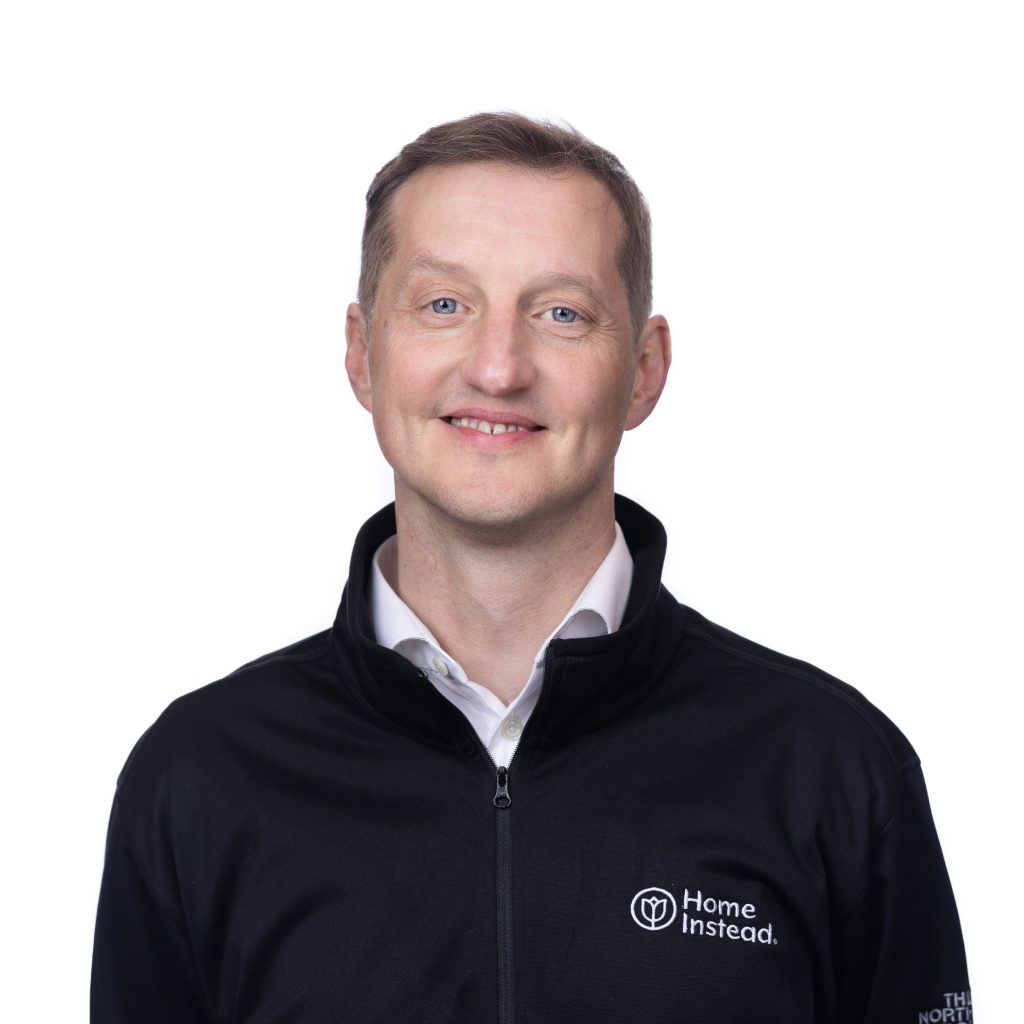
Michael Wright, Director of Public Affairs, Home Instead Ireland
Helen will be introduced by Kevin Quaid.
Dementia care giving follows a long, sometimes rocky path, but by taking your hand and guiding you through her 35 years of care giving her family members and mentoring those in her Lewy Body Dementia community, Helen will share the lessons she’s learned to ease the journey.
Providing practical steps to understanding, building a support system, tips for self-care, resources, and the wisdom gained expressed through the voices of her fellow caregivers as well as her personal journey.
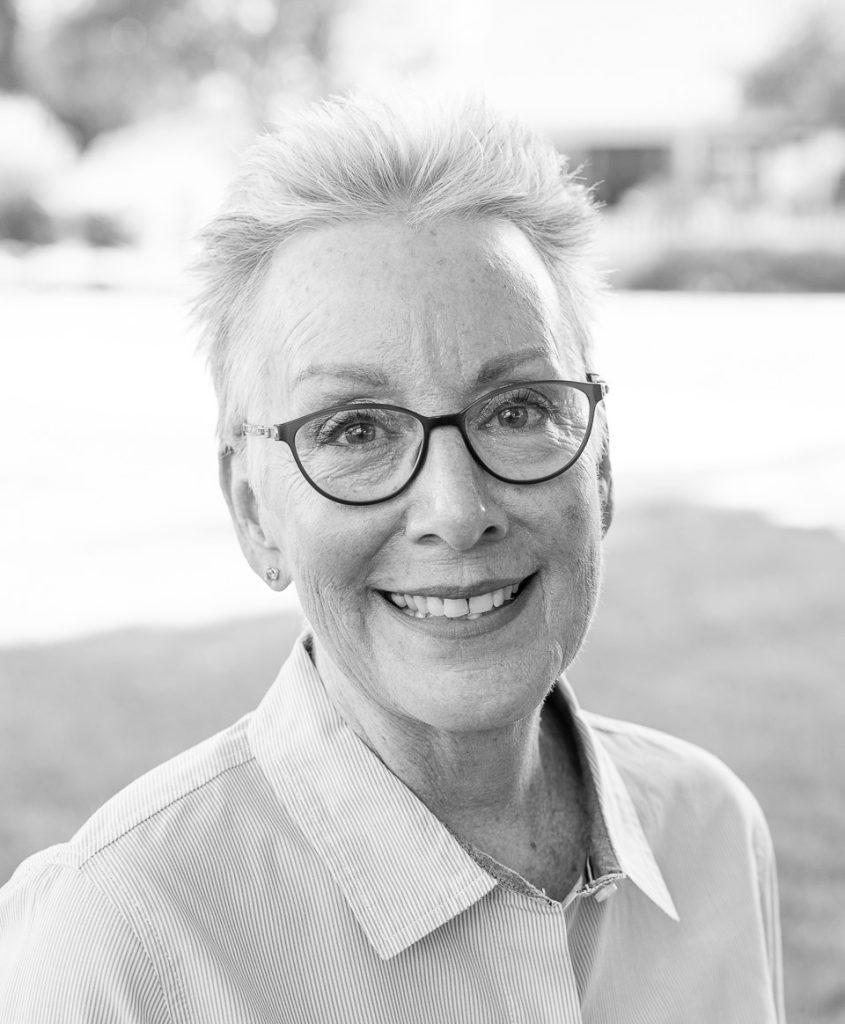
In addition to care giving other diseases, for over 30 years Helen was the primary caregiver and health care advocate for two generations of her family who lived with Parkinson’s Disease with Lewy Body Dementia.
Currently, she is a support services volunteer and the facilitator of a Lewy Body Dementia Association (LBDA) affiliated caregiver sup-port group in Northern California, a trained LBD caregiver peer mentor, a member of the University of California–San Francisco Memory & Ageing Centre’s Family Advisory Council, a member of the Dementia Community Research Advisory Panel at the Global Brain Health Institute, and Patient and Public Involvement Chair (PPI) for the ISTAARTPIA: Partnering with Research Participants. In 2021, she was federally appointed one of two caregiver representatives to the NAPA Advisory Council on Alzheimer’s Research,Care, and Services under the U.S. Dept. of Health and Human Services making recommendations to the HHS Secretary and Congress, and recently was named the 2022 LBDA Volunteer of the Year.
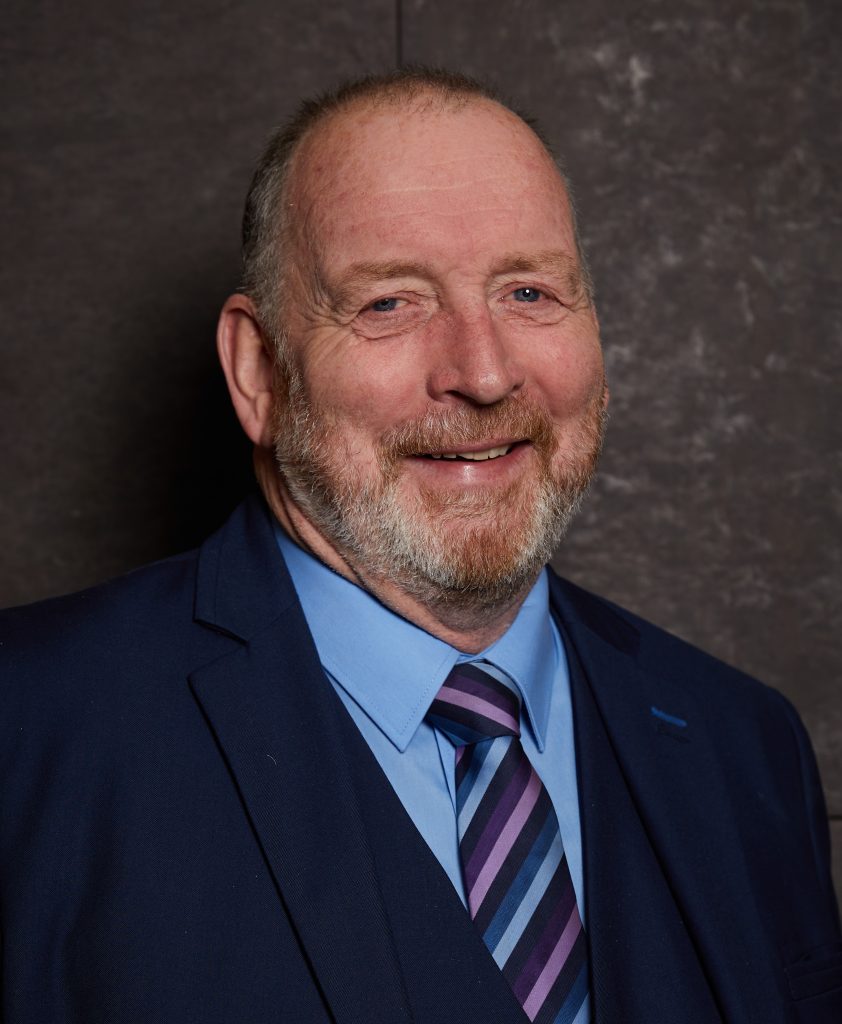
Limerick native Kevin Quaid was diagnosed with Lewy Body Dementia in 2017 aged 53, after being diagnosed firstly with Parkinsons. He is a member of the Irish Dementia Working Group as well as vice chair of the European Working Group of People with dementia and co founder of Lewy Body Ireland. He is also the author of two books: “Lewy Body Dementia, Survival and Me”, and “I am KEVIN not Lewy”.
Kim Tully will provide closing words for the first day.
CEO Kim Tully will welcome attendees to the 15th International Dementia Conference.

Kim joined Engaging Dementia as CEO in late 2020. She has over 20+ years of experience in diverse roles for a renowned global organisation, and is enjoying her move into the community and voluntary sector. Kim has a Master’s Degree in International Business from the University of South Carolina, USA.
Mary Cunningham will be presenting, on behalf of former IDWG Chair Seán Mackell. Seán was instrumental in the commissioning of the Irish Dementia Working Group Nursing Home Paper. Seán is now a resident in a nursing home.
Mary will be followed by Dr. Helen Rochford Brennan who will discuss the IDWG Nursing Home Paper.
The Paper aims to firstly explore aspects of human rights and capacity and decision-making
for PLWD in nursing homes in Ireland and practice considerations. It outlines how adult safeguarding and abuse are understood and explore some of the specific issues relating to the abuse of PLWD in nursing homes. It also examines the specific impact of Covid19 on PLWD in nursing homes and current challenges to the protection of PLWD in Ireland who may be experiencing harm, neglect, or abuse. It concludes with concrete recommendations from IDWG for changes to current practices and policies relating to the human rights, care, well-being, safety, and protection of PLWD in nursing homes in Ireland.
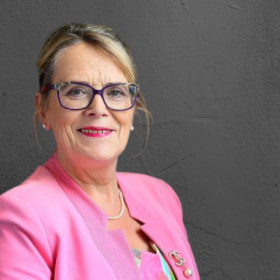
Dr Helen Rochford-Brennan is a Global Dementia Ambassador.
Helen is a former Chair, and currently Vice Chair, of the Irish Dementia Working Group and was formerly Chairperson, of the European Working Group of People with Dementia and its nominee to the Board of Alzheimer Europe. Helen sits on the Monitoring Committee of Ireland’s first National Dementia Strategy and is a panel member of WHO Global Dementia Observatory Knowledge Exchange. Helen is also a member of the International Advisory Board for Alzheimer Disease International (ADI) 2023; HRB Primary Care Clinical Trials, National University of Ireland, Galway (NUIG).
Helen supports various research projects with the Global Brain Health Institute. Helen is a member of the PPI Ignite Network Public Advisory Board and collaborates with the Global Coalition on Aging, EU Mental Health, the World Dementia Council, the National Office for Human Rights and Equality
Ireland and the Decision Support Service Ireland.
Helen is currently a Champion of Ireland’s Decision Support Service which was recently launched.
Dr. Garabedian will discuss her experience as a therapeutic musician.
Through her varied offerings, Claire is committed to employing her unique combination of knowledge, experience, and talent to bring about change, equality, connection – and the best in all people – regardless of external differences. Whether this is through sonically creating a ‘haven’ in which listeners can flourish and connect through receptively listening to music, providing training and tips to other musicians and carers, teaching aspiring cellists and chamber players of all ages and abilities, or collaborating with colleagues towards increasing the much needed evidence towards attaining funding and support for the basic human need of connection and comfort, that music and the arts more generally have a unique possibility of providing to all.
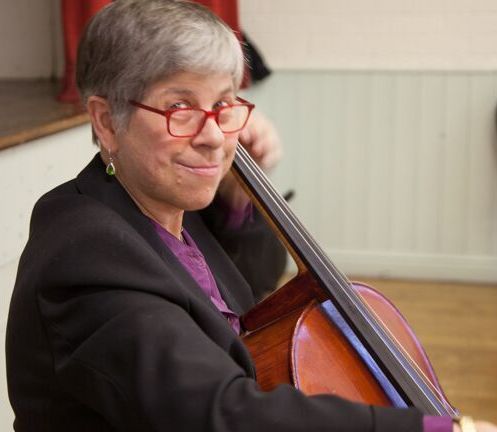
(Photo by Cathy Greenblatt)
Dr Claire Garabedian, PhD, is a modern and baroque cellist, therapeutic musician, educator, and researcher specialising in music as a conduit for connection; particularly for people who are living with dementia / who are in palliative care. She has presented her work throughout the UK, Europe and the USA-including at the Hay Literature Festival and on BBC radio 4. She regularly provides virtual and live workshops and informative recitals. Claire is currently teaching cello in the Edinburgh council schools and providing therapeutic music sessions to groups and individual care home residents. More information about Claire and her work can be found at: drclairegarabedian.com
Stella Farrell has qualifications in Art Therapy, Counselling and Psychotherapy and is a big believer in the healing power of creativity and communication for people with dementia. Stella will discuss her experience of using the Story2Remember programme in a care setting, outlining the various elements of the programme as well as it’s application and the effects she has noticed within her clients.
The Story2Remember programme was developed as part of ERASMUS+ and piloted in four European countries: Romania, Greece, Bulgaria and United Kingdom. It also proposes a Toolkit for improving communication between family carers and persons with dementia, alternative communication methods and storytelling, and a public policy document for creating dementia friendly communities and institutions.
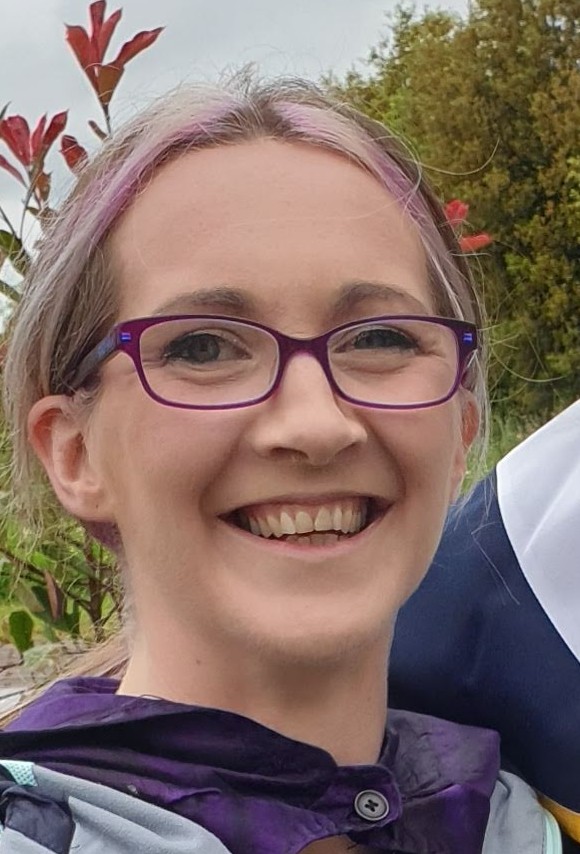
Stella has been working in St. Joseph’s Centre since 2014. Before this she worked in the community also as a carer. She has a Degree in Art from IADT, certificate in Art Therapy from CIT. She has also completed three semesters of a Masters Degree in Counselling and Psychotherapy in DCU.
(this session is prerecorded)
Short Break
Material Citizenship is a new approach to dementia care. This approach priorities and supports access to and interaction with everyday, often taken for grants, objects that help maintain personal routines and rituals; the use and associated social interaction enabling people to maintain and express their identity, actualising citizenship.
In this presentation an overview of the findings of the study which led to the development of the concept of Material Citizenship will be provided. It will also show how the absence of material things can led to over pathologising and the continuation of a negative narrative surrounding dementia.
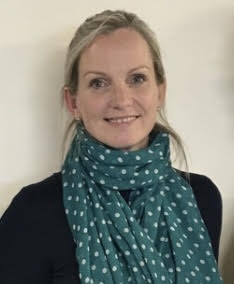
Dr Kellyn Lee is a BPS Chartered Psychologist, Founder of WISER Health and Social Care and The Dementia Care Hub Meeting Centres. She is the creator of Material Citizenship, a new evidence-based approach to dementia care, which featured in the national press. Kellyn spent over a decade in Ageing and Dementia research working on projects at the University of Portsmouth, and the University of Southampton. It was whilst completing her PhD at the University of Southampton that she developed Material Citizenship. Kellyn also works at the London School of Economics and Political Science on the NIHR Enabling Research in Care Homes project and is the Chair for the Innovation and Impact Board at the Institute for Health and Social Care Management.
(This session will be prerecorded)
Siobhan and Nicola aim to bring attendees through the development and implementation of their award winning Volunteer Programme. The audience will learn about the processes involved, and how to fit a volunteer programme into the Nursing Home Setting.
Saint Joseph’s Shankill is the first nursing home in Ireland to achieve the Investing in Volunteers Award, which is the quality standard for best practice in volunteer management in the Republic of Ireland and the United Kingdom.
Their volunteers complement and support the core staff team in providing the level of individualised care that is so essential for people living with dementia and which is of such enormous benefit to them. The also bring great energy, warmth and creativity to the home and are an integral part of daily life in Saint Joseph’s.
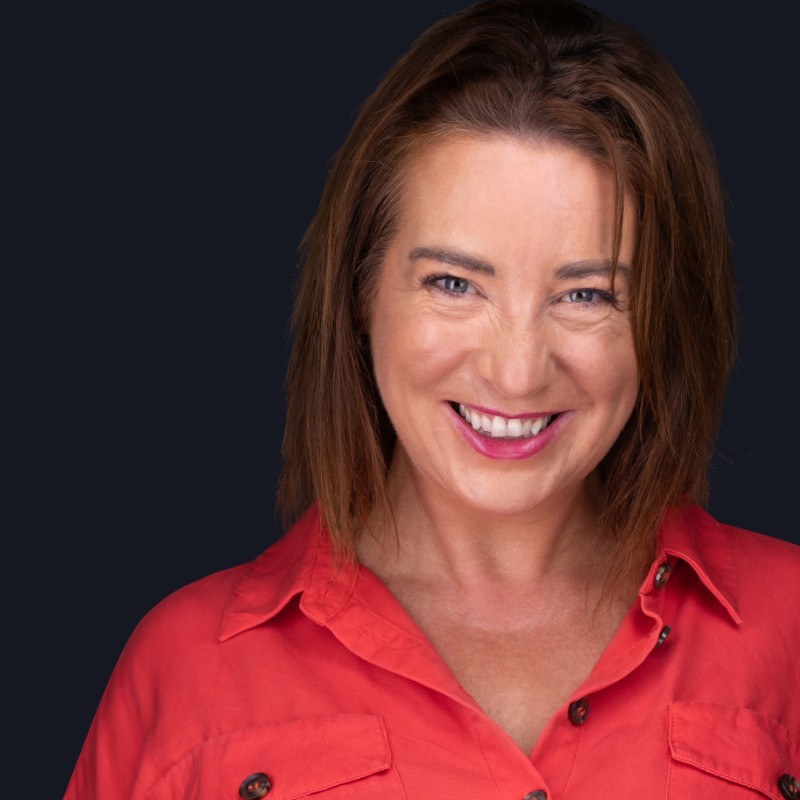
Siobhan Grant is the Fundraising Manager for Saint Joseph’s Shankill. She started in Saint Vincent’s Hospital where she trained as a general nurse. Following this she worked in Film and Television, and achieved a post grad in PR. She worked for nearly ten years as a manager and director with Special Olympics Ireland in marketing, events and fundraising. Her Post Grads in PR, Essential Management and Digital marketing all added together with her background in nursing are skills she uses every day at Saint Joseph’s.
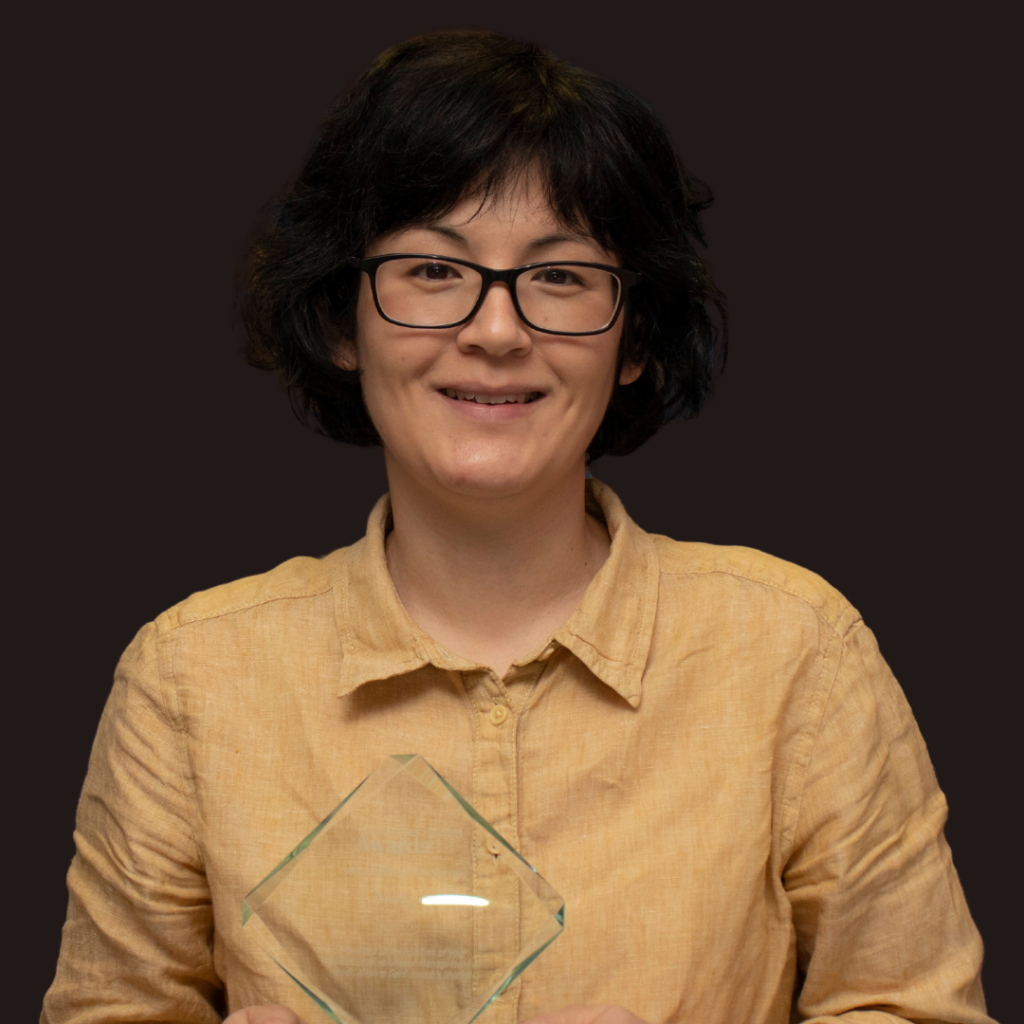
Nicola Yau joined the Saint Joseph’s Shankill team in November 2018 as their Volunteer and Community Coordinator. She has been awarded the Volunteer Manager of the year in 2020 by Volunteer Ireland, and the programme has achieved the Investing in Volunteers Award, the UK and Ireland’s Gold Standard in volunteer programme management.
Kyle will present on the work and research of Rendever:
“As the world of technology progresses at an accelerated rate, new products and services are coming to life that provide amazing opportunities to enhance the lives of people
living with dementia. In this session, we will explore how Rendever VR technology can improve the lives of people with dementia. We’ll overview the federally-funded, first-of-its-kind clinical trial that Rendever is conducting on virtual family engagement for people with dementia, as well as share findings from past research studies that cover the holistic benefits of the technology – ranging from mental health to social networking.
We’ll share examples of how Rendever has been used effectively in various settings and highlight the role of stakeholders, including family members and staff members, in
empowering people with dementia to live abundantly through technology.
Attendees will leave with practical strategies for enhancing care and empathizing with the human story behind the disease by using VR technology. Join us to learn more about the widespread potential of Rendever, and why it’s become an important asset in the dementia care toolbox.”

Kyle Rand is the cofounder and CEO of Rendever, a virtual reality (VR) platform helping seniors combat social isolation through
the power of shared experiences. Having always felt a close kinship to seniors, Kyle grew up volunteering at a senior living community and later went on to study cognitive decline in the aging population at Duke University. After a personal experience moving his own grandmother into a senior living community, Kyle experienced first-hand the effects social isolation has on seniors and co-founded Rendever as a result.
Under Kyle’s leadership, Rendever is changing the lives of thousands of seniors in more than 450 senior living communities worldwide. Most recently, Kyle oversaw Rendever’s collaboration with UC Santa Barbara to start a multi-site clinical trial to observe the positive impact VR has on seniors. In 2019, he was honoured on Forbes “30 Under 30” list for the profound impact his work has had on the senior living industry. Kyle has given lectures and presentations at universities across the country, and spoken on global stages ranging from the Googleplex to a stadium in South Korea.
Break for lunch
Deirdre will be discussing The Nursing Home Ireland Report: The Experience of Nursing Home Staff of Residents’ Access to Services
This research was carried out by Deirdre Shanagher & Amy Hackett along with Members of the NHI National Nursing Committee and wider NHI Membership with an aim to explore the interface between nursing home provision for older people and their continued access to primary and community care services.
Deirdre will outline it’s findings including the three primary categories identified via their focus group: integration of private and voluntary nursing homes with the wider health and social care system, quality of life for residents; and the fair deal scheme.
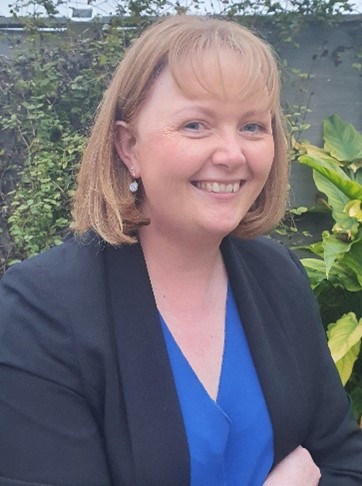
Deirdre Shanagher works as Strategic Clinical Nurse Expert with Regulatory Compliance with Nursing Homes Ireland (NHI). She links in with NHI members in relation to clinical and regulatory issues that arise for members within nursing homes across the country. This role involves her working with the NHI National Nursing Commit-tee to develop resources of relevance to staff. Her role also involves collecting and collating member views on various clinical and regulatory issues and representing them at various forums. Deirdre previously worked as a healthcare assistant, nurse and nurse manager within three Dublin based nursing homes. Prior to taking up her current role she worked with Irish Hospice Foundation, where she led the Palliative Care for All and Primary Palliative Care Programmes that focused on palliative care for people with illnesses other than cancer, advance care planning and advance healthcare directives.
Dr. O’Dowd will explore the clinical features of Lewy Body dementia, other motor-cognitive syndromes such as PSP and Corticobasal Syndrome and discuss evidence-based management of these disorders from a medical and holistic perspective.

(Photographer Paul Sherwood)
Dr Seán O’Dowd is a Consultant Neurologist with a special interest in cognitive disorders and dementia and has been Clinical Lead at the National Dementia Office since October 2022.
He has almost fifteen years’ experience in the field, commencing his higher specialist training in Neurology in 2009 by completing an MD on CSF biomarkers of the tauopathies (Progressive Supranuclear Palsy (PSP) and Corticobasal Syndrome (CBS)) and Alzheimer’s disease. He subsequently completed further sub-specialty clinical training in neurodegenerative diseases in particular Dementia with Lewy Bodies (DLB) in Newcastle upon Tyne, UK, before commencing his first consultant role in East Anglia in 2016, including a commitment at the Cambridge Memory Clinic. In 2017 he established a specialist Cognitive Clinic in Tallaght University Hospital(TUH), now an integral part of the Regional Specialist Memory Centre, which he co-directs with gerontologist Professor Sean Kennelly. His clinic at TUH serves as a tertiary referral unit for patients with atypical and young-onset neurodegenerative syndromes.
Jackie Pool will describe the latest developments in supporting people to keep healthyand active when also living with dementia. This includes self-management and evidence-based cognitive rehabilitation therapy approaches to reducing the symptoms of dementia.

Jackie Pool is an Occupational Therapist and has specialised in dementia for over 35 years, working in health and social care in hospitals, care homes and with people at home. In addition to being the developer of QCS PAL Instrument, she is also the author of the book: From Dementia to Rementia. Jackie is a regular speaker at conferencesand a re-searcher with the University of Exeter. She is also a Trustee with the National Activity Providers Association(NAPA) and a strong believer in the importance of engagement in meaningful activity to promote well-being for all. Her role as the Dementia Care Champion for QCS Quality Compliance Systems and also as a Visiting Lecturer to post-graduate students at the University of Winchester supports her ongoing passion for learning and sharing knowledge to support those who are living with dementia.
Kim Tully will say a few words to close off the conference.